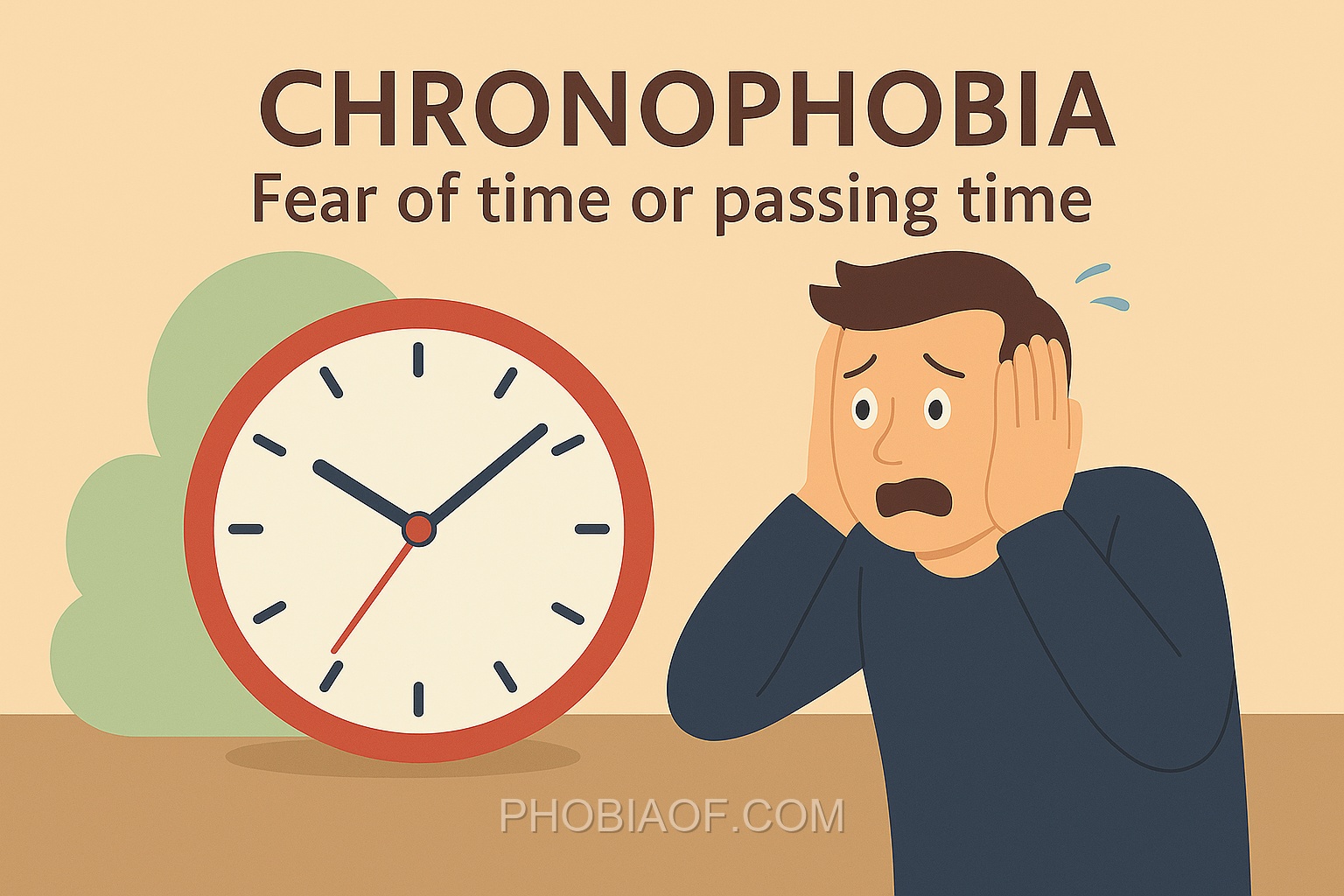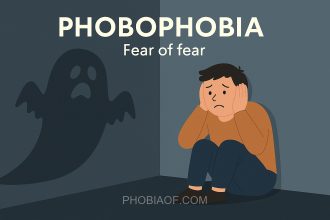Have you ever found yourself anxiously watching the clock, feeling an overwhelming sense of dread as each second ticks away? If so, you might be familiar with a phenomenon known as Chronophobia, or the fear of time and the passing of time. This fear, derived from the Greek words chronos meaning “time” and phobos meaning “fear,” can significantly impact those who experience it.
Chronophobia is more than just a simple unease about time; it is a deep-seated anxiety that can manifest in various ways. People struggling with this fear often feel a persistent worry about the future, a panic over the passage of time, or an intense fear of the unknown as time progresses.
This condition can affect individuals in numerous ways, influencing their daily lives and mental well-being. Some common effects include:
- Constant anxiety about deadlines and schedules.
- Difficulty enjoying the present moment due to preoccupation with the future.
- Stress and agitation when thinking about aging or major life changes.
- A sense of being trapped or powerless as time continues to move forward.
Understanding and addressing chronophobia is crucial for those who experience it, as it can help alleviate the burdensome weight of time-related fears. With compassionate support and appropriate strategies, individuals can learn to manage their anxieties and live more peacefully in the present.
Causes of Chronophobia
Chronophobia, or the fear of time, can stem from a variety of causes. Understanding these can help in addressing the phobia effectively. Below are some potential reasons why someone might develop this fear:
- Genetic Predisposition:
Some individuals may have a genetic predisposition to anxiety disorders, which can include chronophobia. If anxiety disorders run in the family, there might be a higher chance of developing a fear of time due to inherited traits.
- Traumatic Experiences:
Experiencing a traumatic event related to time, such as a sudden loss or a life-changing incident, can trigger chronophobia. The perception of time as a reminder of such events might lead to persistent fear.
- Learned Behavior:
Chronophobia can also be learned from observing others. If someone close, like a family member or friend, exhibits anxiety about time, it might influence others to develop similar fears.
- Psychological Factors:
Individuals with existing anxiety disorders may be more prone to developing chronophobia. A heightened sense of awareness about the passage of time can exacerbate feelings of anxiety.
- Environmental Factors:
High-stress environments that focus heavily on deadlines and time management can contribute to chronophobia. The constant pressure to meet time-related expectations might cause anxiety over time itself.
One interesting theory suggests that our modern society’s obsession with time and productivity can heighten awareness of time passing, thus increasing anxiety around it. While research is ongoing, understanding these potential causes can guide approaches to treatment and support.
Symptoms of Chronophobia
Chronophobia is characterized by an intense fear or anxiety related to the passing of time. Individuals with this phobia experience a range of symptoms that can significantly impact their daily lives. Recognizing these symptoms in oneself or others is crucial for seeking appropriate help and support. Below are some common symptoms associated with chronophobia:
Physical Symptoms:
- Panic attacks, which may include a racing heart, shortness of breath, or chest pain.
- Excessive sweating, often triggered by thoughts of time passing.
- Rapid heartbeat that can occur suddenly and without warning.
- Dizziness or lightheadedness, especially when confronted with time-related triggers.
- Nausea or gastrointestinal distress linked to anxiety about time.
Emotional and Behavioral Symptoms:
- Overwhelming dread or hopelessness when thinking about the future or the passage of time.
- Avoidance of situations or discussions that relate to time, such as deadlines or aging.
- Compulsive behaviors aimed at controlling time or maximizing its use.
- Intense focus on clocks or calendars, sometimes leading to obsessive checking or planning.
- Difficulty concentrating on daily tasks due to preoccupation with the concept of time.
When severe, these symptoms can interfere with daily life, making it challenging to work, maintain relationships, or enjoy leisure activities without being overshadowed by fear and anxiety related to time.
Treatment for Fear of Time or Passing Time
Chronophobia, the fear of time or the passing of time, can feel overwhelming, but it’s important to remember that this phobia can be effectively treated and managed with the right approach. Many individuals have successfully learned to cope with and overcome their fears, and you can too. Here, we will explore various treatment options and coping strategies that can help you regain control and find peace.
Therapy Options
- Exposure Therapy: This technique involves gradually facing the fear of time in a controlled and safe environment. By slowly exposing yourself to the concept of time and its passing, you can begin to reduce your anxiety response. This method helps desensitize you to the fear over time.
- Cognitive-Behavioral Therapy (CBT): CBT is a well-established therapy that focuses on changing the negative and fearful thoughts associated with time. By identifying and challenging these thoughts, you can develop healthier, more balanced perspectives.
- Counseling: Engaging in counseling with a mental health professional can provide you with a supportive space to explore your fears and develop coping strategies. This guidance can be invaluable in your journey to overcoming chronophobia.
Self-Help Coping Techniques
- Relaxation Exercises: Techniques such as deep breathing, progressive muscle relaxation, and guided imagery can help calm your mind and reduce anxiety related to time.
- Meditation: Practicing mindfulness meditation can assist in grounding you in the present moment, reducing the emphasis on the passage of time and alleviating anxiety.
- Support Groups: Connecting with others who understand your experiences can provide comfort and support. Sharing strategies and stories can be empowering and reduce feelings of isolation.
Medication
In severe cases, medication such as anti-anxiety drugs may be considered. However, it is generally recommended to focus on therapy and coping skills as the primary approach. Medication can be discussed with a healthcare provider to determine the best course of action for your individual needs.
Remember, it’s essential to seek professional help if chronophobia is interfering with your daily life. A mental health professional can tailor a treatment plan specifically for you, ensuring the best possible outcomes on your path to recovery. Stay hopeful and proactive—improvement is within reach.
Conclusion
Understanding the causes and symptoms of chronophobia is a crucial step in addressing this often overwhelming fear of time or the passing of time. By recognizing the underlying factors that contribute to this phobia, such as anxiety about the future or the inevitability of change, individuals can begin to demystify their feelings and take proactive steps towards managing them.
It’s important to remember that many people successfully overcome or manage their phobias with patience and the right support. If you find yourself struggling with chronophobia, consider reaching out to a mental health professional or your doctor. Therapy can offer valuable insights and coping strategies tailored to your unique experiences.
Take heart in knowing that with time, understanding, and appropriate help, you can navigate the challenges of chronophobia and regain a sense of peace and control over your life. Remember, seeking help is a sign of strength, and many resources are available to support you on this journey.






